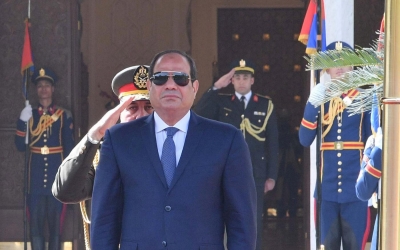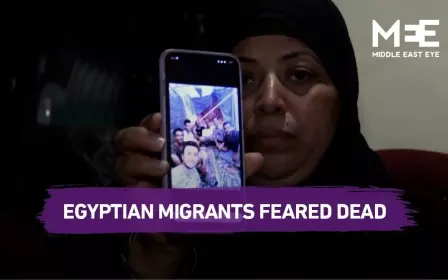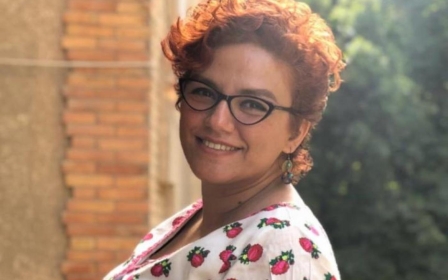Egypt using special terror courts to silence dissent, UN experts say

UN experts have accused Egypt of using special terrorism courts to imprison human rights defenders and silence dissent, with the government of President Abdel Fattah el-Sisi "gravely endangering" activists' lives by imprisoning them during the pandemic.
The UN Human Rights Council said in a statement on Friday that Cairo was treating free speech as terrorism.
"Terrorism charges and exceptional courts are being used to target legitimate human rights activities, and have a profound chilling effect on civil society as a whole," according to 10 international specialists, including the UN rapporteurs on counter-terrorism and extrajudicial killings.
"The use of terrorism courts to target and harass civil society is inconsistent with the rule of law."
The statement came days after Egypt executed 15 political prisoners who had been in detention since 2014.
New MEE newsletter: Jerusalem Dispatch
Sign up to get the latest insights and analysis on Israel-Palestine, alongside Turkey Unpacked and other MEE newsletters
The UN experts slammed the terrorism courts, saying that they undermine defendants' basic legal rights, including the presumption of innocence. The special courts were created in 2013 after a Sisi-led coup overthrew the elected government of then-president Mohamed Morsi.
"Defendants do not enjoy the right to confer safely and confidentially with their lawyer," said the experts.
"In addition, when the accused are put on trial from behind glass or inside metal cages, sometimes cut off from proceedings at the discretion of the presiding judge, they cannot effectively use their right to be present at their own trial."
Egypt has embarked on a brutal crackdown on dissent since 2013, jailing more than 60,000 activists and imposing strict censorship measures on public discourse.
Sisi has consistently denied that there are political prisoners in Egypt, framing the crackdown as part of the fight against terrorism. After coming to power, he outlawed Morsi's Muslim Brotherhood and blacklisted it as a terror group.
On Thursday, the UN advocates cited the case of Bahey El-Din Hassan, director and co-founder of the Cairo Institute for Human Rights Studies, who was sentenced to 15 years in absentia in August over his criticism of the government.
"It is an act of reprisal, seemingly punishing [him] for his cooperation with the United Nations," the statement said.
"The exercise of free speech and human rights work are being treated as terrorism, and it appears that the Terrorism Circuit Court is being used to retaliate against human rights activity protected by international law."
Middle East Eye delivers independent and unrivalled coverage and analysis of the Middle East, North Africa and beyond. To learn more about republishing this content and the associated fees, please fill out this form. More about MEE can be found here.





